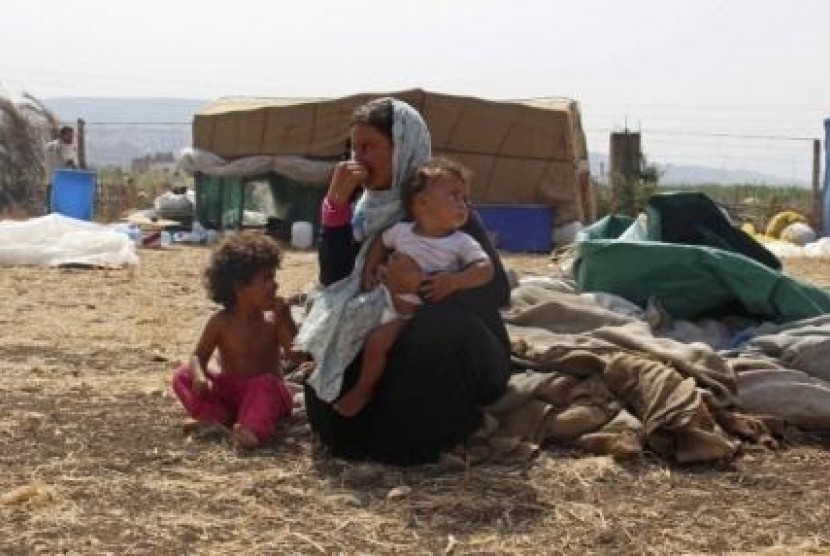REPUBLIKA.CO.ID, BEKAA -- The Lebanese Labor Ministry has recently issued a decree to protect the country's labors' work opportunity due to the competition caused by the rising influx of Syrian refugees on the labor market.
Lebanon is currently facing a critical unemployment situation due to the political instability both at regional and national levels, and more worse by the influx of more than 1.2 million refugees from the war-torn Syria.
At present, the overall unemployment rate in Lebanon stands at around 30 percent.
In face of such a dramatic situation, the Lebanese Minister of Labor Sejaan Qazzi issued a decree, which would be applied as of the very beginning of 2015, to prevent the Syrian nationals from entering the labor market in the electricity, sanitary, paint, restaurant, barber shops, food services and the farming sectors, in order to protect the Lebanese labors.
This would limit very much the job opportunities for the Syrian refugees who will only be allowed to work in the agriculture, construction and cleaning sectors, according to the decree.
The decree when applied would deprive around 80 percent of the Syrian labors in Lebanon of their jobs which help support life after they were displaced from their home country.
"That is a strike in the head," said Ahmad al-Ahmad, a Syrian displaced from the northwestern province of Idlib.
Al-Ahmad works at a construction site in the West Bekaa with a monthly salary of 400 U.S. dollars. And he with another four Syrian refugees shared one tent on the east bank of the Qaraon lake.
"The Labor Ministry decree is shocking and unfair, and would have very negative repercussions on our lives and families. We will face more misery," Al-Ahmad said.
Samer Abou al-Izzi, who fled from Syria's northern province of Aleppo, has worked in a local supermarket for more than 18 months with a monthly salary of 350 dollars. He said his boss has informed him that he has to stop working as of the end of the year due to the ministry's decree.
"The decree is binding and cannot be overruled although he is in need of me and five other Syrians working for him," al-Izzi said.
The supermarket owner also said that the decree would certainly create negative results on his establishment and the Syrian labors, but would be positive for the Lebanese labors.
He told Xinhua, "I fired earlier Lebanese workers and replaced them with Syrians because of their low wages, you can hire two Syrian workers with the wage of one Lebanese."
"I would have to hire Lebanese labors, but they have to accept what we pay a Syrian one, or our costs will be higher and the customers will have to pay the difference," the market owner added.
Same impressions about the decree were also expressed by Fayza al-Masri, a mother of four children who lost her husband during the battles in the city of Homs and now worked as auditor in a commercial company in the Bekaa city of Shtaura.
"Our lives now turned into a continued tension because of the ambiguity of our future," she told Xinhua.
"I earn 400 dollars each month, out of which I spend 120 dollars on rent and the remaining is to support our living. Now we are hit directly by the decree."


